Change the bed in the summer, how often?
How often do the Dutch change their bed? Fortunately, most people wash their bedding more often in the summer than in the winter, but little research has been done on this in the Netherlands. However, British research (DailyMail) shows that 40% of the respondents do indeed check their every week bed changes.
On average you lose 500 ml of fluid per night. With the hot days this will be more and changing your bed earlier is necessary. The advice is, change your sheets en bed sheet at least once a week and twice a week in the summer.
The sheets and duvet cover contain a lot of bacteria because it comes into contact with your skin first. Bacteria and mites do not like the cold, if you hang the bed linen outside, the mattress will also air immediately. Today's detergents can already get the laundry clean at 30 degrees. At a temperature of 30 degrees, the mites are not killed. It is important to wash at a minimum of 60 degrees. Check the labels to see if your bedding can withstand this.
Why do you sweat at night?
sweating at night is normal. Just about everyone does it, according to research published in The Journal of Family Practice. One just sweats more than the other. If you suffer from night sweats a lot, one of the possible causes is an environment that is too warm. Maybe your bedding is too warm, ventilate you mattress and protector too little or your heating is too high. It is difficult for sweat to evaporate in bed, so that the sweat glands remain active. Other causes of sweating can include:
1. Hormonal Disorders
Your body temperature is regulated by a small part of the brain: the hypothalamus. This is done with the help of hormones. When your hormones are out of balance, it can cause you to sweat more than usual at night. Night sweats are also a symptom of a number of hormonal disorders such as pheochromocytoma and carcinoid syndrome.
2. Infections
When you experience a lot of night sweats, it could be a symptom of an underlying infection. Most infections also cause a fever, so you can also suffer from this during the night. Examples of underlying infectious diseases are rheumatism, tuberculosis and abscesses.
3. Anxiety, Stress and Depression
Psychological factors can also underlie excessive perspiration at night. The adrenaline that is produced during anxiety and stress causes an accelerated heart rate and increased blood pressure. This will make you warmer and start sweating in your warm bed at night.
4. Digestion
Did you eat too much the night before? Then there is a good chance that you sweat more than usual at night. Your digestive system will then work overtime at night resulting in a heat attack. The same applies if you have eaten a (slightly too) spicy evening meal.
5. Medicines
Sweating a lot at night can also be the result of drug use. Antidepressants, cortisone and painkillers, among others, have night sweats as a side effect. Certain diabetes medications can also be the cause.
6 Alcohol
Did you soldier on a bottle of wine last night? Even then, there is a good chance that you will break out in a sweat at night. The alcohol ensures that many organs are busy at night to process the wine. Because your stomach, liver and intestines are so busy digesting the alcohol, you will heat up faster and sweat more.
7. Idiopathic Hyperhidrosis
The condition hyperhidrosis causes you to perspire more than usual to keep body temperature constant. The cause of this condition is unknown. Symptoms often start during puberty and last for several years.
8. Cancer
You may be shocked by this cause, but one of the first symptoms of some cancers is night sweats. The most common cancer associated with night sweats is lymphoma. In addition to night sweats, do you also suffer from unexplained weight loss and fever? Then it is wise to consult a doctor.
9 Diabetes
Low blood sugar can also cause you to sweat in bed at night. This is especially common in people who suffer from type 1 diabetes. Low blood sugar is often accompanied by fatigue, difficulty concentrating, tremors, headaches, dizziness, hunger and yawning.
10. Sleep Apnea
Sleep apnea is also a common cause of sweating while you sleep. This condition causes you to stop breathing several times, for a short time, during the night. Breathing in sleep apnea requires much more energy from the body, which makes you sweat more.
-
 Order
OrderDreamhouse Oscar – Ultimate Comfort with Electrically Adjustable System
From:2.499,951.498,95discount -40% -
 Order
OrderAdore – Boxspring – Element Pearl – With Built-in Storage Box – Beige
From:2.198,951.198,95discount -45% -
 Order
OrderATTREZZO® – Anti-Bacterial Hotel Topper – Mattress Overlay – Mattress Protector – Soft Topper
From:54,9533,95discount -38% -
 Order
OrderDreamhouse – Box spring – Storage box – Blackpearl – Black
From:2.099,951.098,95discount -48% -
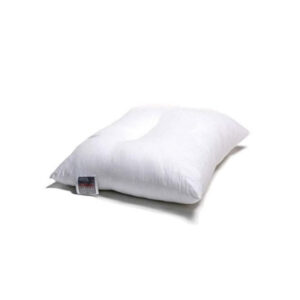 Order
OrderKonbanwa pillow – Therapeutic Pillow – For side sleepers, stomach sleepers and back sleepers
39,9524,95discount -38% -
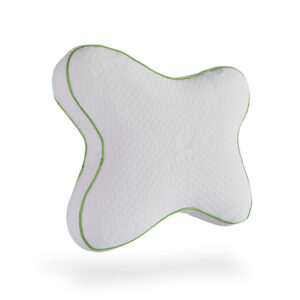 Order
OrderSleepMed – Ergonomic Butterfly Pillow
49,9523,95discount -52% -
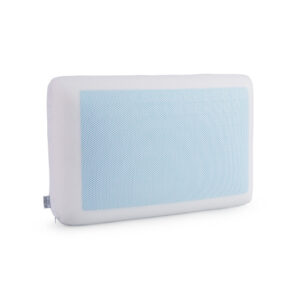 Order
OrderSleepMed – Cooling pillow – Cooling Gel Technology
49,9529,95discount -40% -
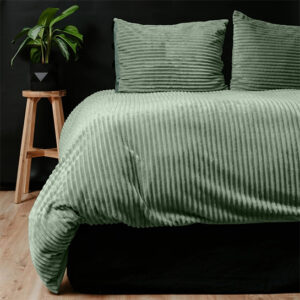 Order
OrderSleeptime – Rib Teddy Green – 100% Teddy Rib polyester
From:59,9529,95discount -50% -
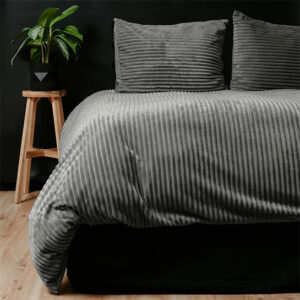 Order
OrderSleeptime – Rib Teddy Gray – 100% Teddy Rib polyester
From:59,9529,95discount -50%





